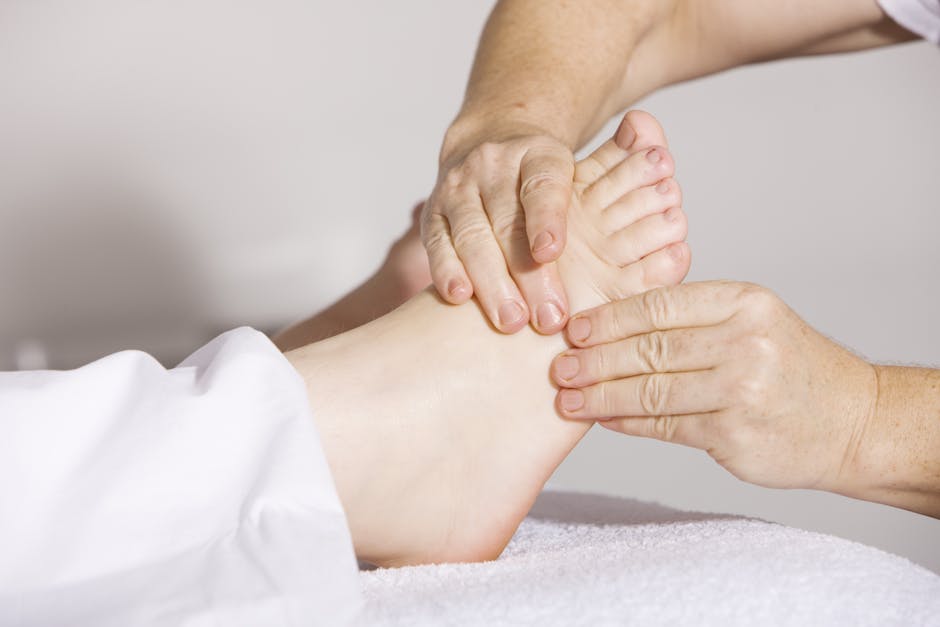
osteoarthritis, Arthritis, Rheumatism, Joint Pain ... You are not convicted to suffer part 2
Your body is full of tendons
These questions are all the more important because you have many more tendons than you are aware of.
I spoke to you above about the tendons of the hand.
But you also have tendons to hold the joints of your arms and legs. Tendons that hold your hips and shoulders in place. Tendons in the neck, back, elbows, knees, feet, fingers, wrists and toes ...
The Achilles tendon you know well, is only one of your tendons among 4'000!
The slightest movement on your part makes use of thousands of tendons which, practically all, can deteriorate and cause terrible joint pain in the neck, shoulders, back, hips, wrists, fingers and, of course, on the knees.
It is therefore important that each of them be in good shape to help you move and continue your activities (gardening, cooking, walking, etc.).
The problem is that even when you "normally" tendon your tendons, they wear out with the years.
The last time you've heard of tendons, it may be your grandson who has had a ski fall, or a sports event on television. And yet, you do not need to do high level sport to damage your tendons.
The simple fact of aging is enough to use your tendons.
The tissues of your body repair less and less well with age, especially for women after menopause1. You see the effect on the skin, which is not the same at 50 years old than at 20 years old.
For the tendons, it's a bit the same story. With the years, they dry up2. The lack of activity makes them rigid and fragile, because it is the movement that causes their hydration. So, as soon as we ask them more than usual, they hurt.

That's why it's essential to take care of your tendons if you want to relieve your joint pain.
I spoke to you above about the tendons of the hand.
But you also have tendons to hold the joints of your arms and legs. Tendons that hold your hips and shoulders in place. Tendons in the neck, back, elbows, knees, feet, fingers, wrists and toes ...
The Achilles tendon you know well, is only one of your tendons among 4'000!
The slightest movement on your part makes use of thousands of tendons which, practically all, can deteriorate and cause terrible joint pain in the neck, shoulders, back, hips, wrists, fingers and, of course, on the knees.
It is therefore important that each of them be in good shape to help you move and continue your activities (gardening, cooking, walking, etc.).
The problem is that even when you "normally" tendon your tendons, they wear out with the years.
The last time you've heard of tendons, it may be your grandson who has had a ski fall, or a sports event on television. And yet, you do not need to do high level sport to damage your tendons.
The simple fact of aging is enough to use your tendons.
The tissues of your body repair less and less well with age, especially for women after menopause1. You see the effect on the skin, which is not the same at 50 years old than at 20 years old.
For the tendons, it's a bit the same story. With the years, they dry up2. The lack of activity makes them rigid and fragile, because it is the movement that causes their hydration. So, as soon as we ask them more than usual, they hurt.

That's why it's essential to take care of your tendons if you want to relieve your joint pain.
Do not succumb to painkillers!

The temptation, in the face of suffering, is to take painkillers (analgesics), such as paracetamol, aspirin and other "nonsteroidal anti-inflammatory drugs" (NSAIDs).
This is a possible short-term option, but not suitable for chronic pain.
Indeed, more and more specialists question the effectiveness of anti-inflammatory drugs in the management of joint pain.
And for good reason !
They mask your pain without treating the origin of your osteoarthritis. But even worse, they intensify it.
Recent studies have shown that anti-inflammatory drugs accelerate the development of osteoarthritis by aggravating the breakdown of cartilage, bones and tendons3.
When taken regularly or for long periods, studies report that these anti-inflammatory drugs can even lead to tendon rupture4.
In the long run, they also have serious side effects on your stomach, heart and kidneys.
Every year in France, 20,000 people have digestive bleeding because of the anti-inflammatory drugs that sneakily penetrated the lining of their stomachs and intestines.
This figure is cold in the back; especially when we know that there are natural solutions that are effective and harmless.
Rheumatic diseases are chronic diseases. The crucial point is not to relieve yourself a few days or weeks, but to pursue a long-term therapeutic strategy that will protect your joints over time.
For this, you must strengthen your tendons.
The first step to take is to increase your collagen intake.
You will understand why.... to be continude



No comments:
Post a Comment